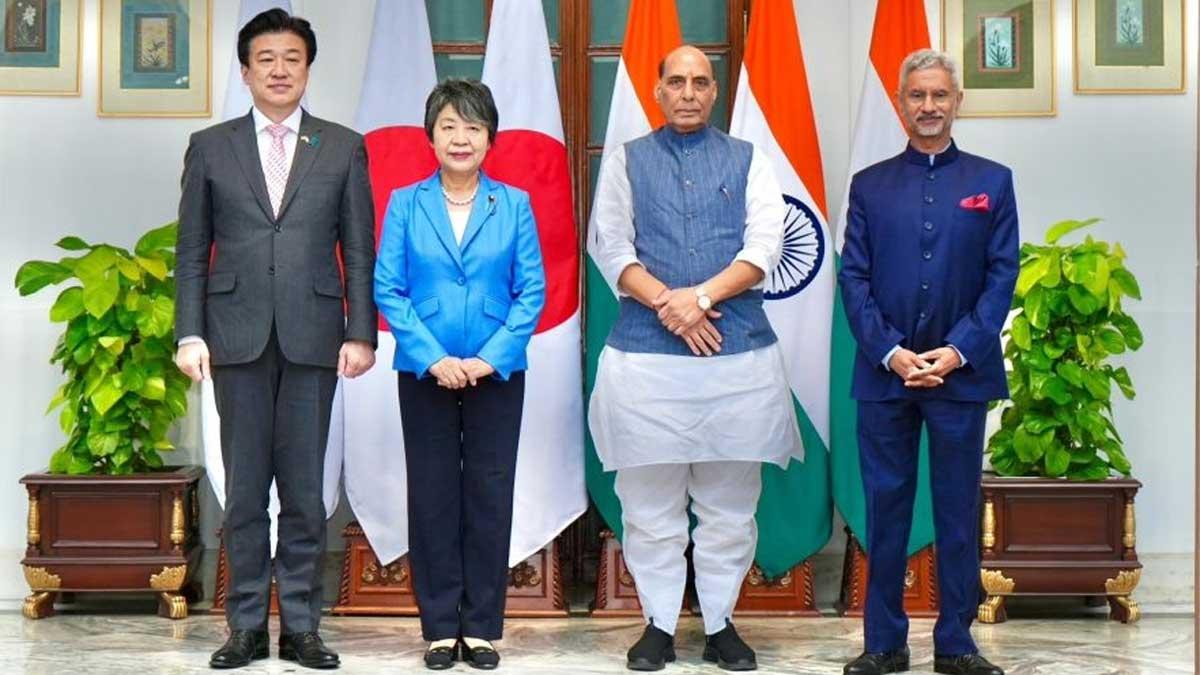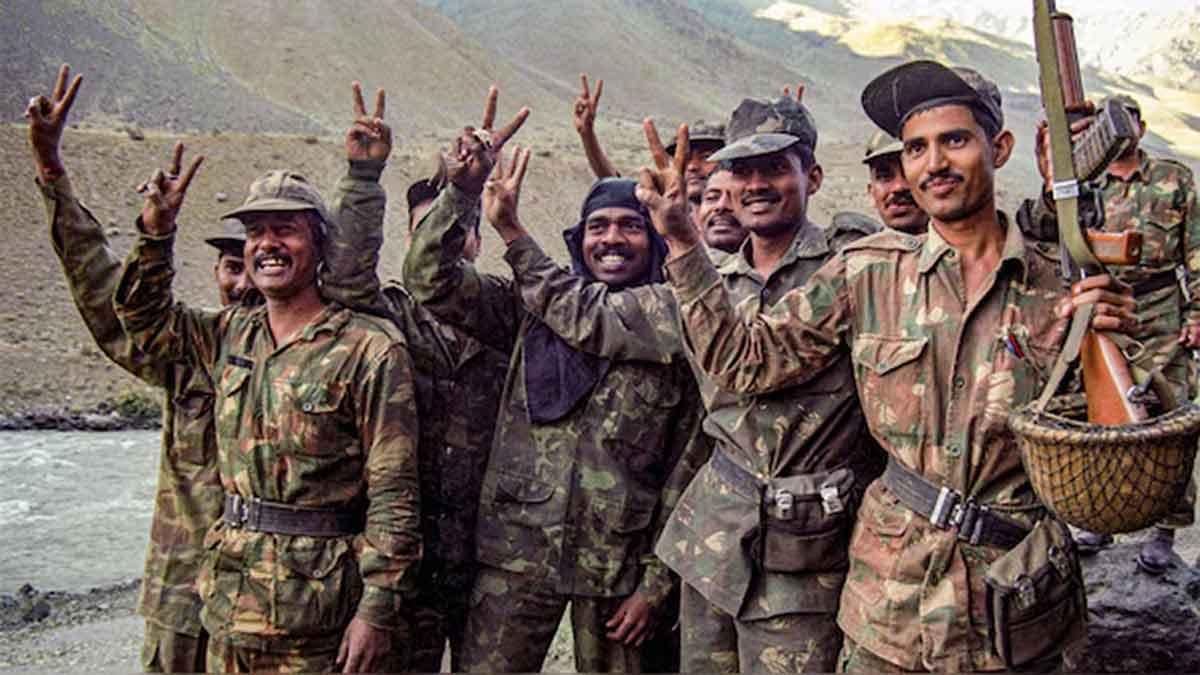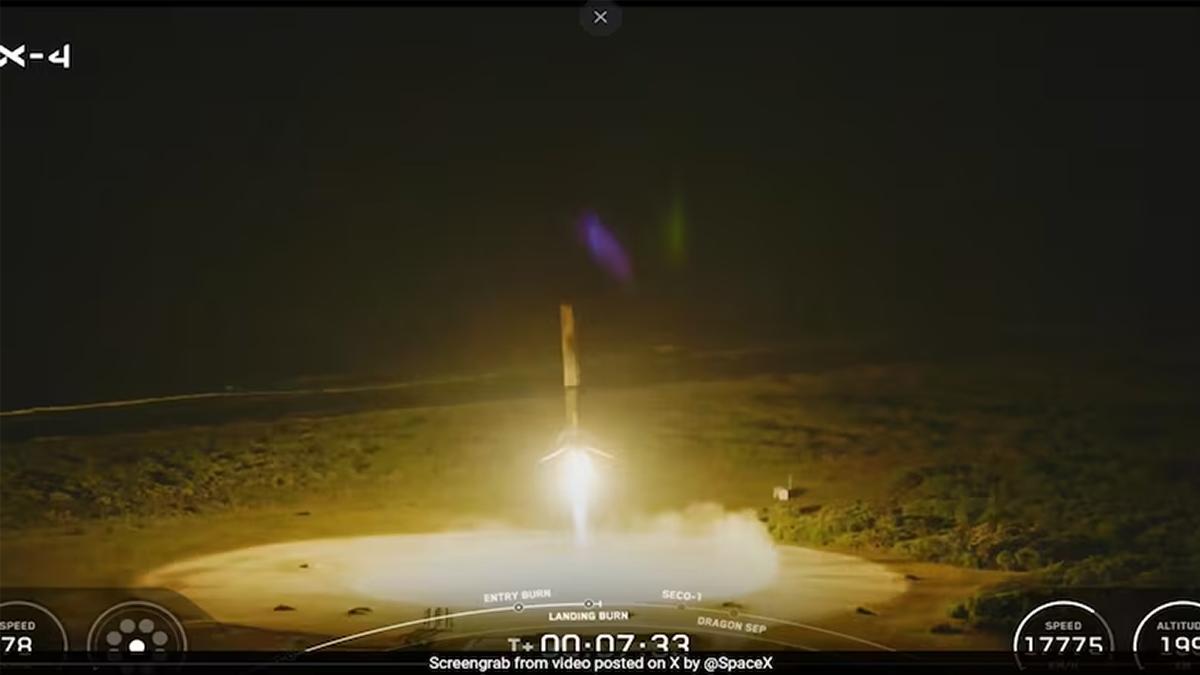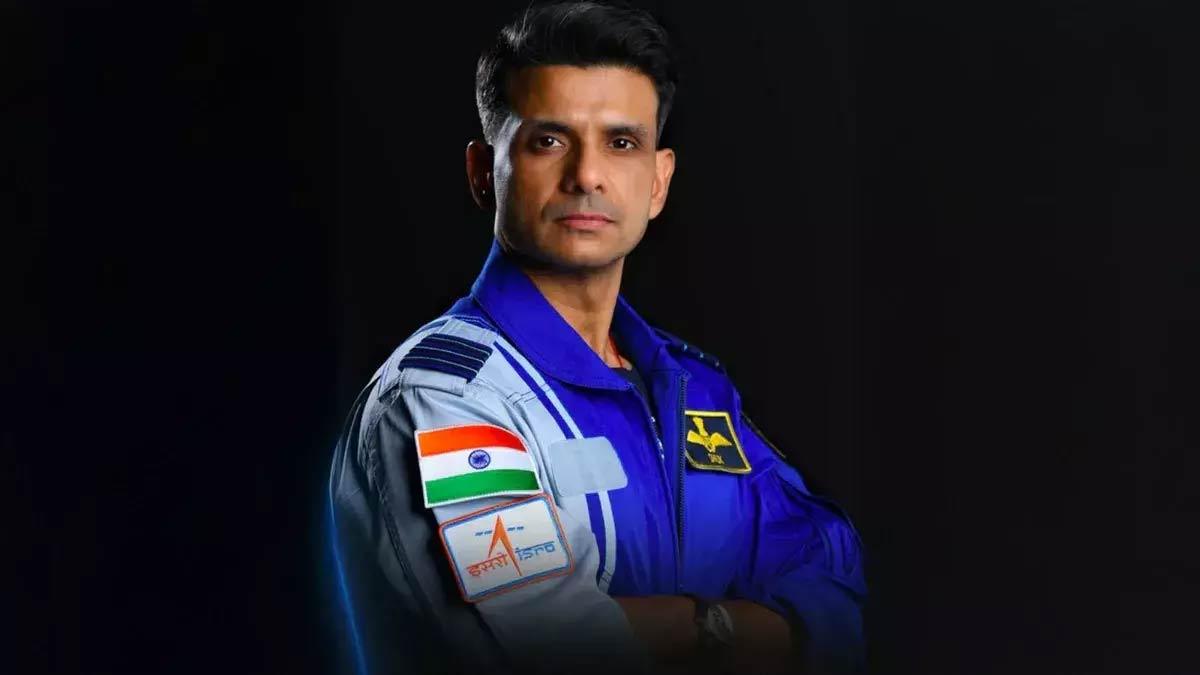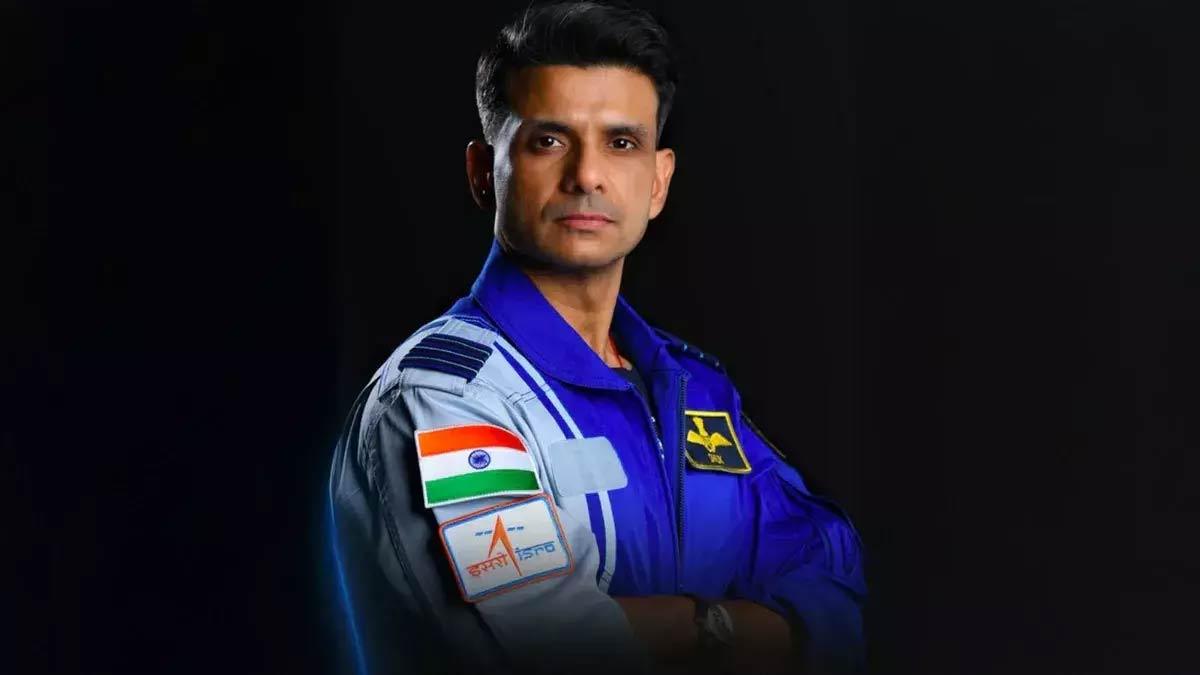India sent out a strong indirect message to China, saying it is incumbent upon all nations to eschew unilateral actions that have bearing upon the existing status-quo. It called for respect for national sovereignty, territorial integrity, and peaceful resolution of disputes without any threat or use of force.
“As two democratic countries that share common values, the Ministers reaffirmed their commitment to maintaining and strengthening rules-based international order founded on the principles of the UN Charter,” said the Joint Statement issued after the conclusion of the third India-Japan 2+2 Foreign and Defence Ministers’ meeting held at the Hyderabad House on Tuesday evening.
It is in this context that Defence Minister Rajnath Singh, External Affairs Minister S. Jaishankar, Japanese Foreign Minister Kamikawa Yoko, and Japan's Defence Minister Minoru Kihara emphasized a shared strategic vision for a free, open, and inclusive Indo-Pacific, consonant with the rules-based international order.
In the final declaration, they reaffirmed strong support for ASEAN's unity and centrality and further endorsed the 'ASEAN Outlook on the Indo-Pacific'.
“The Ministers reiterated their strong support for ASEAN’s unity and centrality and their full support for the ‘ASEAN Outlook on the Indo-Pacific (AOIP)’ which upholds the principles such as openness, transparency, inclusivity, a rules-based framework and respect for international law,” mentioned the statement.
The four ministers held an in-depth discussion on regional and global issues in the Indo-Pacific. They took satisfaction in noting the possibility of greater bilateral security and defense cooperation predicated upon Japan's National Security Strategy in December 2022, and they further recognized that such cooperation was one of the main features of the India-Japan Special Strategic and Global Partnership.
Progress since their September 2022 meeting was taken note of; there were outcomes in multilayered dialogues, including the Defence Policy Dialogue, Vice-Minister/Foreign Secretary level Dialogue, Foreign Office Consultations, Disarmament and Non-Proliferation Dialogue, Cyber Dialogue, and the Japan-India Joint Working Group on Counter-Terrorism. They also looked forward to the expansion of dialogues to areas like space, maritime affairs, and Africa. The Ministers agreed to encourage further in-depth discussions on the issues of economic security and strategic trade, and to proceed with efforts towards reform of the Security Council with a view to strengthening the United Nations.
The ministers condemned in the strongest terms all forms of terrorism, including cross-border terrorism; called for bringing the perpetrators of the 26/11 Mumbai, Pathankot, and other attacks to justice; and underlined the need to act against UN-listed groups, including Al Qaeda, ISIS/Daesh, Lashkar-e-Tayyiba, and Jaish-e-Mohammad. Moreover, they stressed that states who support terrorism should see that terrorist safe havens, their financing, and their cross-border movement are ended.
They noted progress on defence cooperation, including Japan's first air visit and participation in India's exercise 'Tarang Shakti' and the inaugural bilateral fighter exercise 'Veer Guardian 2023'. The Ministers also welcomed the joint exercises involving all three services for the first time in 2023.
They had emphasized cooperation in space and cyber dimensions. Reiterating multilateral defense cooperation in the Indo-Pacific region, they have taken note of the successful cooperation in Unmanned Ground Vehicles, UGV, and robotics. They took note that the technology transfer of Unified Complex Radio Antenna, UNICORN, was nearing finalization.
It was also agreed during the meeting that the 2008 Joint Declaration on Security Cooperation between India and Japan is to be updated as per contemporary priorities and security challenges. This was the first visit of Kamikawa Yoko to India as Foreign Minister of Japan.
For Japan's Ministry of Foreign Affairs, India is a central country for the trade routes of the Indian Ocean and, therefore, one of the essential partners in the realization of a Free and Open Indo-Pacific. The meeting was held to discuss the maintenance and strengthening of a free and open international order based on the rule of law and enhancing security and defense cooperation.
As EAM Jaishankar said while visiting Tokyo for the Quad Foreign Ministers meeting last month, “In the last decade, our relationship has assumed the form of a Special Strategic and Global Partnership. The logic of this evolution is our expanding interests and growing activities. As we both step forward into a more volatile and unpredictable world, there is a need for reliable partners with whom there are substantial convergences. “As a result, we have consciously sought to facilitate each other’s endeavours, comprehend each other’s objectives, strengthen each other’s positions and work with other nations of shared comfort. Our Strategic Partnership will continue to grow as we embrace mutuality and display sensitivity."

